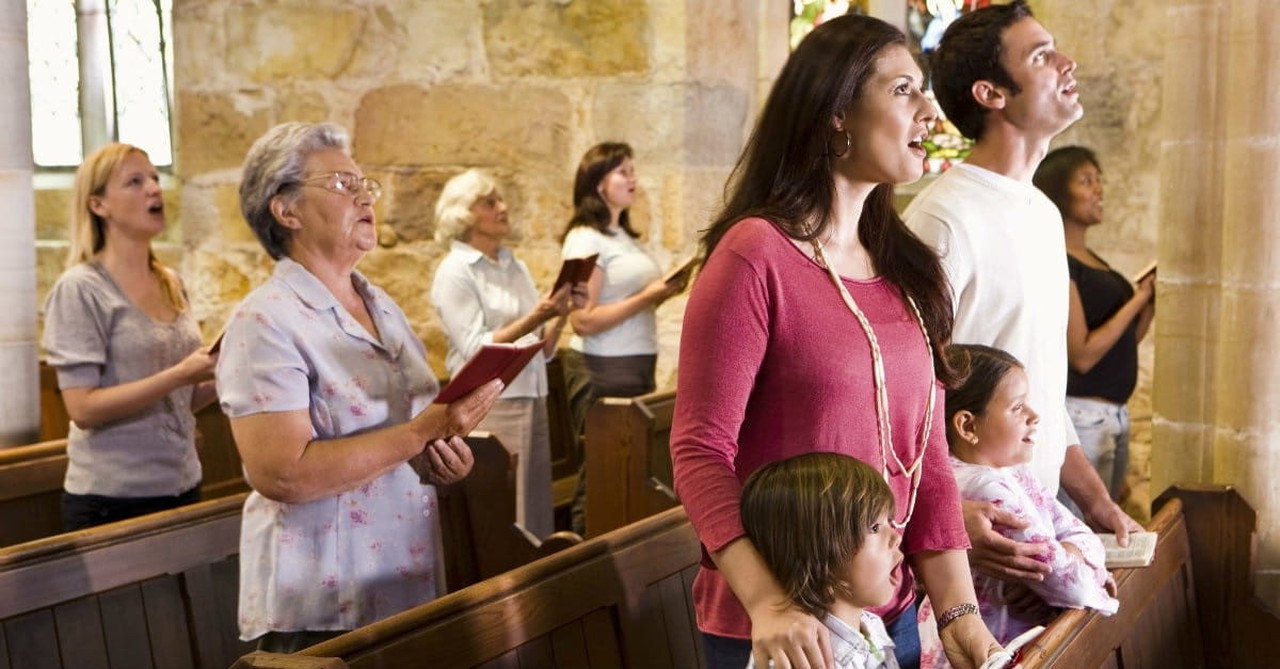10 Excuses Christians Use for Missing Church

In today’s culture of multiple service times, locations, and worship styles, it’s interesting how many people still come up with excuses for not attending church. Often these aren’t the casual attendees who appear on major Christian holidays, but those who profess great faith in God, yet struggle to maintain a consistent attendance at any local church.
For some people “Sunday morning” and “church” just go together. It’s like PB & J, and their weekend just wouldn’t be complete without attending a service as part of a local congregation. Whether they are fancily-clad walking into their white-steepled building, or showing up in skinny jeans to a retrofitted warehouse in the urban center, most people who claim a life of Christian faith typically find someplace to meet with other believers on the weekend. They may jump in quickly, building community, serving in some capacity and making it “home.”
Others struggle with the idea of putting down roots at a church. For some, they “shop” around for a while before landing someplace permanent, and their reasons for leaving one congregation, and then another, can have some merit—like safe places for their children to learn about Jesus. Sadly, there are far less important reasons for missing church, and we’ve listed those below as well.
Photo credit: Pexels.com
1. The "music" isn't their style.

1. The "music" isn't their style.
SLIDE 1 OF 10
It’s either too loud or too old. They either want more upbeat songs, or they detest the “fog” and flashy lights. It’s either too much of one thing or not enough of another.
Throughout the Bible, there are accounts of people coming together in praise and with song. The Psalmist says, “sing to the Lord a new song; sing to the Lord, all the earth. Sing to the Lord, praise his name!” (Psalm 96:1-2) and yet many people would admit that they would come to church more “if the worship was more my style.”
Photo credit: ©Thinkstock/DesignPics
2. They aren't the target demographic.

2. They aren't the target demographic.
SLIDE 2 OF 10
Most churches don’t have the resources to have services and ministries that appeal to every age, stage, and interest. It can be difficult to be a multi-generational church that anyone can feel welcomed at and excited about.
For those individuals who find that they are the only single-and-under-30 person in a room full of gray heads, it’s probably only a matter of time before they are searching for something more youthful. Similarly, families may not feel comfortable in a room full of millennials reading the Bible from their iPhones—especially when there’s no childcare, it’s Sunday night at 8 PM, and their kids have school the next morning.
Photo credit: ©Thinkstock/Jupiterimages
3. The service times are not convenient.

3. The service times are not convenient.
SLIDE 3 OF 10
This statement goes hand-in-hand with the previous excuse. Chances are if someone is complaining about a service time, it’s because they don’t fit into the target demographic.
Getting up for an 8 AM service on Sunday mornings isn’t going to fit into the late-night style of young person, just as most middle-aged people (with children) want to have service before noon because they are already up and going by then.
Photo credit: ©Thinkstock/Sean824
4. The don't feel connected.

4. The don't feel connected.
SLIDE 4 OF 10
While “community” is one of the biggest reasons that individuals have for attending a local church, it is often the excuse people use for missing it altogether. While the responsibility is on each person to establish and then grow relationships within a congregation, it tends to be terrifying enough that the church leadership is expected to produce “authentic relationships” for everyone.
Rather than getting out of their comfort zone to forge new friendships, they slip into the back of the room late and give excuses as to why they can’t meet up for food after service. They are also typically unable to attend small group meetings or volunteer in any type of ministry—where they would inevitably meet new people.
Photo credit: ©Thinkstock/vadimguzhva
5. They don't like the teaching.

5. They don't like the teaching.
SLIDE 5 OF 10
Other than music styles, this is what individuals complain about the most. The preacher is either too long-winded, or uses an odd translation; they talk about money, divorce, and politics too much; or, they tell a lot of stories, but fail to open the Bible altogether.
Most people have an opinion about what the pastor should be speaking on every week and expect the church to be run like a democracy where everyone gets to vote on what topics should be on the docket and the amount of time the pastor is allowed to speak. Some find themselves being “screamed” at, and others “coddled,” and if this is the case, it causes enough anxiety to decide that showing up just isn’t worth it.
Photo credit: ©Thinkstock
6. Their kids don't like going.

6. Their kids don't like going.
SLIDE 6 OF 10
For most parents, quality childcare is a major concern and complaint. If their young children are throwing themselves on the floor each week during drop off, parents aren’t going to be eager to get out the door on Sunday morning. Teenagers, in contrast, won’t be screaming and having a tantrum at the door of their class… but if they are barricading themselves in their bedroom in the morning, or dragging their feet and rolling their eyes all the way from the car to the youth room, chances are their parents will be looking into other churches in town with better programs for students.
Many parents will even stay at a church that they don’t particularly enjoy themselves if they feel like it’s a good place for their kids. Staff, curriculum, and the physical environment are all reasons that kids give for not wanting to return—and that is often enough for mom and dad.
Photo credit: ©Thinkstock/Purestock
7. They are too busy.

7. They are too busy.
SLIDE 7 OF 10
Whether they work shifts, or weekends, or have active children who participate in team sports, there are many people who find it challenging to make the service times fit into their calendar. In the case of those who attend a small, country church with only one or two service times, this may be an easily-understood excuse. For most individuals, however, there are sometimes dozens of options between Friday and Sunday evening, and multiple campuses to choose from.
Others might be able to make a service time work, but they seem to always have a reason for missing: “their business getting off the ground,” “the overtime required by the boss," or the endless list of weekend chores, errands, and travel that is simply too important to prioritize better.
Photo credit: ©Thinkstock
8. They already do a lot of "church" stuff.

8. They already do a lot of "church" stuff.
SLIDE 8 OF 10
For many who work at a church or in a para-church organization, this is often the excuse; it tends to be a bit of a work hazard when the place you worship is also the place that signs your paycheck.
There are others whose calendar is so full of Bible studies, conferences and seminars that they really don’t have time to be part of weekend services. Many people find time to volunteer on the weekend, whether at their church or another charity, and believe doing this is their substitute for attending a service.
Photo credit: ©Thinkstock/JHershPhotography
9. They aren't a fan of "organized religion."

9. They aren't a fan of "organized religion."
SLIDE 9 OF 10
They may claim a deep faith in God and love the Bible, yet they really struggle to submit to a local church full of “hypocrites” and “money-hungry” zealots. They love Jesus and believe what He taught, but they have been hurt in the past, taken advantage of, or abused in some way that lumps all churches together.
They are perfectly fine getting their fix of church service via a live stream or podcast format, and with those options more and more available, it’s easy to see why attendance may be on the decrease.
Photo credit: ©Thinkstock/welcomia
10. They don't feel weekly attendance is necessary.

10. They don't feel weekly attendance is necessary.
SLIDE 10 OF 10
The average attendance for most church-goers in America being twice a month, they can check off their “good deed” one week and feel justified staying home the next. For these individuals, it really isn’t about the specifics of the church; they just don’t see it as a priority.
Perhaps they have never heard Hebrews 10:25 that cautions, “and let us not neglect our meeting together, as some people do,” or maybe they feel that this verse only applies to those who are “members” of a church.
Malinda Fuller and her husband Alex have served at several churches and para-church organizations in the U.S. and Canada for over a decade. Malinda wields truth and grace through the words on her blog and has also contributed content for Relevant, Thrive Moms and The Influence Network. Malinda and Alex currently reside in Southern California, where they are homeschooling their daughters, working in ministry and trying to not complain about the continuous sunshine.
Photo credit: ©Thinkstock/digitalskillet
Originally published March 07, 2025.









